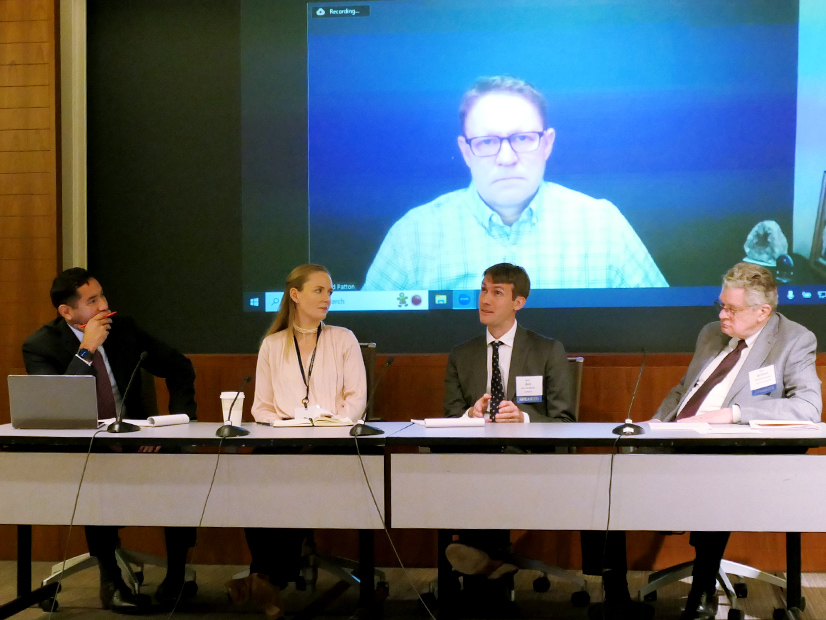
A panel of energy experts took ISO-NE’s capacity market to task last week, lambasting the region’s Forward Capacity Market and offering ideas about how to improve it.
The panel at the Northeast Energy and Commerce Association’s Power Markets Conference, held Dec. 5, was titled “Can Markets Get Us More Reliable?”
And while the answer from the group wasn’t an unconditional “no,” it involved heavy criticism for the way the capacity market is currently set up.
“I’ve always viewed forward capacity markets as the original sin of market design,” said William Hogan, a professor of global energy policy at Harvard University.
“I know it’s politically embedded in the system … but I don’t think they’re a solution to any real problem other than mailing checks to people,” Hogan said.
When it comes to ISO-NE’s markets specifically, Sheila Keane, director of analysis at the New England States Committee on Electricity, said that there’s a lack of a “clear measurement or goalpost” for energy adequacy.
“If we’re thinking about changes to the capacity market, that’s something the states are always open to having discussions [about],” she said.
David Patton, president of Potomac Economics, ISO-NE’s External Market Monitor, said the FCM isn’t a viable solution to most of the problems that New England’s grid faces.
“It’s not a very good solution for resource adequacy to begin with, but when you start to look at some of the challenges we’re facing with reliability and the introduction of intermittents, it becomes less and less reliable,” he said.
And Ben Griffiths, regulatory policy director at LS Power, rounded out the critique with an academic bent.
“On the capacity market side, there is not enough liberal arts thinking,” he said. “It’s not clear to people what they’re actually buying, or what [the 1-day-in-10-year loss of load standard] is actually doing.”
DERs and Blurred Lines
On a later panel, titled “Blurring of Wholesale and Retail Lines,” experts laid out the importance of distributed resources for the energy future, and of markets and pricing that help incentivize them.
Greg Geller, head of regulatory affairs at Enel North America, laid out a bevy of benefits from greater DER utilization in New England, including reduced transmission costs, better price signals for emissions reduction, help with winter reliability issues and more.
But to do that, the region needs strong and flexible retail programs, the panelists said.
Part of the challenge is that different entities regulate overlapping spaces, said Caitlin Marquis, director of Advanced Energy Economy.
That’s been demonstrated by the compliance process for FERC Order 2222, which requires RTOs and ISOs to provide DERs access to wholesale electricity markets.
“The compliance directive was on the ISO, not on the states or retail regulators — but they have an important role in implementing pieces of Order 2222,” Marquis said.
ISO-NE is thinking carefully about how to integrate demand resources in the region, said Henry Yoshimura, the grid operator’s director of demand resource strategy.
“What do we need? Retail rates that reflect time-varying costs,” he said.
“Retail prices should be high when marginal costs are high and should be low when they’re low,” Yoshimura added.
Without the right rate design, he said, “you’re never going to get the right demand flexibility” from DERs and other such resources.


